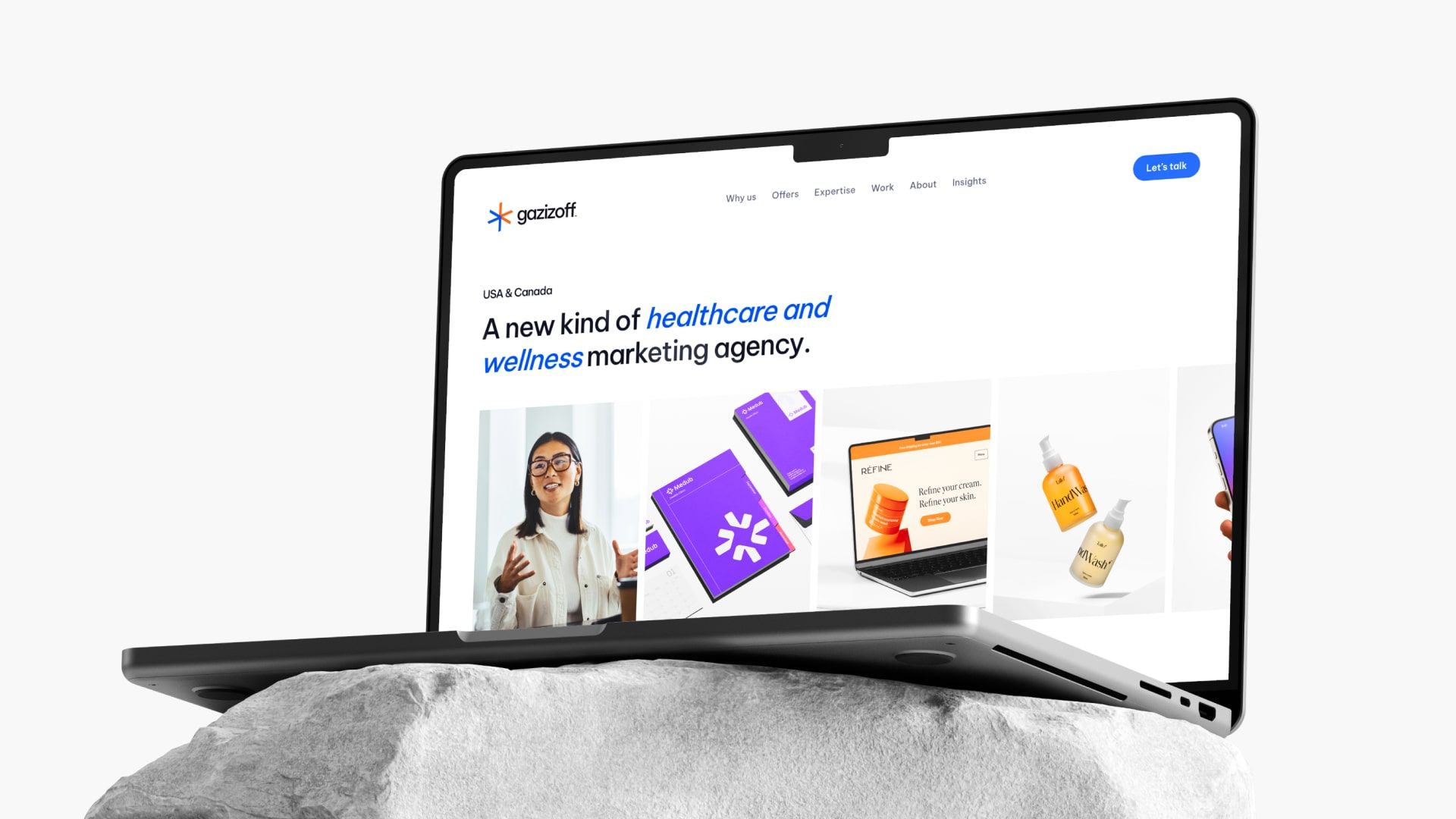In-House vs. Outsourced Marketing: Which one is right for you? [Complete Guide]

Table of contents
As a business owner, decision-maker, or operator, you have likely faced the challenge of choosing between in-house and outsourced marketing.
In this article, I will comprehensively compare the two options, share about the hybrid model, and help you make an informed decision.
Introduction to In-House and Outsourced Marketing
Before diving into the details, let’s first understand what in-house and outsourced marketing is.
In-house marketing refers to managing and executing marketing activities within a company, using its resources and team.
On the other hand, outsourced marketing is when you hire external agencies or freelancers to handle all or part of your marketing activities.
Both in-house and outsourced marketing have advantages and disadvantages. The choice between them depends on various factors such as cost, flexibility, expertise, and adaptability.
In the following sections, we will discuss these factors in-depth and provide you with a clear understanding of the pros and cons.
Understanding In-House Marketing
Advantages of In-House Marketing
- Control: In-house marketing allows your business complete control over marketing strategies, campaigns, and activities. This means the company can quickly adapt to market changes, make timely campaign adjustments, and closely monitor results.
- Brand knowledge and consistency: In-house marketing teams work closely with other departments and have a deeper understanding of the company’s products, services, and target audience. This knowledge allows them to create consistent, accurate marketing messages that resonate with the target audience.
- Cost-efficiency: In some cases, having an in-house marketing team can be more cost-effective than outsourcing, especially if the company has a high volume of marketing activities or requires specialized skills.
Disadvantages of In-House Marketing
- Limited resources and expertise: In-house marketing teams may need more expertise to execute complex or specialized marketing campaigns. This could lead to suboptimal results and a lower return on investment (ROI).
- Higher overhead costs: Hiring, training, and retaining in-house marketing professionals can be costly, especially when considering factors such as salary, benefits, and office space.
- Reduced focus on core business activities: In-house marketing teams may distract from core business activities, as management and other departments may need to oversee marketing projects and make decisions.
Understanding Outsourced Marketing
Advantages of Outsourced Marketing
- Access to specialized expertise: Outsourcing enables businesses to tap into a pool of technical marketing experts and resources, leading to more effective and innovative marketing campaigns.
- Cost-efficiency: Outsourced marketing can be more cost-effective than in-house marketing, as businesses only pay for the services they require, and there are no overhead costs associated with hiring and retaining employees.
- Scalability: Outsourcing allows businesses to scale their marketing efforts up or down without hiring or letting go of employees.
Disadvantages of Outsourced Marketing
- Less control: Outsourcing marketing activities may result in less control over campaigns and messaging, making it more challenging to adapt to market changes or make timely adjustments.
- Potential for misaligned goals: Outsourced marketing agencies may prioritize their goals over the company’s objectives, which could lead to a misalignment of strategies and campaigns.
- Communication challenges: Working with external agencies or freelancers may lead to communication challenges, as they may not be as familiar with the company’s products, services, and target audience.
Understanding hybrid model (outsourced and in-house combined)
A hybrid model for managing marketing involves a combination of in-house and outsourced teams.
In this model, companies manage some aspects of their marketing in-house while outsourcing other parts to external agencies or contractors.
This approach offers several advantages and disadvantages, as outlined below.
Advantages of Hybrid Model
- Cost-effective: The hybrid model allows companies to save costs by outsourcing certain aspects of their marketing, such as creative design, to external agencies while maintaining control over the strategic direction of their marketing campaigns.
- Flexibility: By combining in-house and outsourced teams, companies can take advantage of the flexibility offered by outsourcing while retaining control over critical aspects of their marketing efforts. This allows companies to adapt quickly to changing market conditions and customer needs.
- Access to specialized expertise: The hybrid model allows companies to leverage the expertise of external agencies for technical services such as SEO, PPC, or content marketing. This can be particularly beneficial for companies that don’t have the resources or expertise to handle these activities in-house.
Disadvantages of the Hybrid Model
- Coordination challenges: Managing a hybrid marketing team requires coordination between the in-house and outsourced teams. This can be challenging, mainly when working with multiple external agencies or contractors, which may result in communication breakdowns or delays.
- Cultural differences: When outsourcing to external agencies, there may be cultural differences between the in-house team and external agencies, leading to misunderstandings or difficulties in aligning marketing goals.
- Integration issues: Integrating the work of in-house and outsourced teams can be challenging, mainly when working with complex marketing campaigns or initiatives. Ensuring that all aspects of the campaign are aligned and integrated can be difficult, which may result in inconsistencies or a lack of clarity in messaging.
Factors to consider when choosing between In-House and Outsourced Marketing
Costs Associated with In-House vs. Outsourced Marketing
When comparing the costs of in-house and outsourced marketing, it is essential to consider not only the
Direct costs of in-house teams
- Recruitment
- Salaries
- Benefits
- Government Fees and Taxes
Indirect costs
- Office space
- Equipment (computers, desks, chairs)
- Onboarding and training
- Time spent managing
In some cases, outsourcing may be more cost-effective, especially if the business has limited marketing needs or requires specialized expertise.
However, in other cases, having an in-house team may be more economical, particularly if the company has a high volume of marketing activities or needs to maintain tight control over its campaigns.
Evaluating the level of control and flexibility
Control and flexibility are crucial factors when deciding between in-house and outsourced marketing.
In-house marketing teams typically offer more control and flexibility, as they can quickly adapt to market changes and adjust campaigns.
However, outsourcing can also provide a certain level of flexibility, particularly in scaling up or down.
Ultimately, the decision will depend on the degree of control and flexibility your business requires.
Assessing the quality and expertise of resources
The quality and expertise of resources available for in-house and outsourced marketing will significantly impact your business’s marketing success.
In-house teams may better understand your company’s products and target audience, leading to more accurate and consistent messaging.
However, outsourced marketing agencies often have access to specialized expertise and resources that can lead to more effective and innovative campaigns.
When deciding, it is essential to evaluate the quality and expertise of available resources.
Collaboration and communication: In-House vs. Outsourced Marketing
Effective collaboration and communication are critical for marketing success.
In-house marketing teams may have a communication advantage, as they work closely with other departments and deeply understand the company’s products and target audience.
However, outsourced marketing agencies can also establish effective communication channels, particularly if they have experience working with companies in your industry.
It is essential to consider both options’ collaboration and communication capabilities when making your decision.
Adapting to industry changes and staying up-to-date
Adapting to industry changes and staying up-to-date with the latest marketing trends and technologies is crucial for marketing success.
In-house marketing teams may be more agile in adapting to market changes and implementing new strategies.
However, outsourced marketing agencies often have access to the latest tools and techniques as they work with multiple clients and industries.
It is essential to consider which option will best enable your business to adapt and stay current in the ever-changing marketing landscape.
When is the in-house marketing department better?
An in-house marketing department may be better suited for businesses that require a high level of control and customization over their marketing efforts. Here are some cases where an in-house marketing department may be the best choice:
- Core competency: If marketing is a core competency of your business, or if your business requires a high level of customization and control over your marketing efforts, an in-house marketing department may be the best choice. This lets you manage your marketing campaigns and ensure they align with your business objectives and brand identity.
- Large scale and complexity: If you have a large-scale marketing operation with multiple campaigns and initiatives running simultaneously, an in-house marketing team can help you manage the complexity of your marketing efforts more effectively. They can also provide more responsiveness and agility than an external agency.
- Cost-effectiveness: If you have a high volume of ongoing marketing activities, an in-house marketing department may be more cost-effective than outsourcing to an external agency. You can save on agency fees and have greater control over your budget.
- Confidentiality and security: If your marketing campaigns require high privacy or security, an in-house marketing department can provide a more secure and confidential environment for your marketing operations.
- Close collaboration: If you need close collaboration between your marketing team and other departments within your organization, an in-house marketing department can provide a more seamless and integrated approach to your marketing efforts.
When is it better to outsource marketing to an agency?
An outsourced marketing department may be better for businesses that require flexibility, scalability, and specialized expertise. Here are some cases where an outsourced marketing department may be the best choice:
- Limited budget and resources: If you have a limited budget, outsourcing your marketing department can be more cost-effective than hiring and managing an in-house team. You can access a team of marketing professionals with diverse skills and experience without the overhead costs of hiring, training, and managing an internal team.
- Temporary or project-based needs: If you have temporary or project-based marketing needs, outsourcing your marketing department can provide greater flexibility and scalability than hiring an in-house team. You can access a team of marketing professionals on a project-by-project basis without committing to long-term contracts or overhead costs.
- Need for specialized expertise: If your business requires technical marketing expertise, such as web development, search engine optimization (SEO), or pay-per-click (PPC) advertising, outsourcing your marketing department can provide access to professionals with specific skills and experience.
- Focus on core business: Outsourcing your marketing department can allow you to focus on your core business activities while maintaining an effective marketing program. You can delegate marketing responsibilities to a team of professionals, freeing up time and resources to focus on other business priorities.
- Access to technology and tools: Outsourced marketing departments often have access to advanced marketing technologies and tools, such as marketing automation software, analytics tools, and social media management platforms, which can provide a competitive advantage for your business.
Making the final decision: Which is right for your business?
Ultimately, the decision between in-house and outsourced marketing will depend on your business’s unique needs, goals, and resources.
It is crucial to consider the factors discussed in this article, such as cost, control, flexibility, expertise, collaboration, and adaptability.
By doing so, you will be better equipped to make an informed decision that will contribute to your business’s success.
Conclusion
In conclusion, both in-house and outsourced marketing have their advantages and disadvantages.
The choice between the two depends on various factors such as cost, flexibility, expertise, and adaptability.
By carefully considering these factors and evaluating your business’s unique needs and goals, you can make an informed decision that will ultimately contribute to your business’s success.
Remember, you can always choose the hybrid model that has all the benefits with zero to no disadvantages.
Remember that the right choice for your business may differ from another company’s, so take the time to thoroughly analyze your options and make the best decision for your unique situation.
The content provided on this website is for general informational purposes only and is not intended as professional or expert advice. While we endeavor to present accurate and up-to-date information related to healthcare and wellness marketing, we cannot guarantee its completeness or relevance. Any actions taken based on the information on this website are strictly at your own discretion. For specific guidance tailored to your situation, please consult with a qualified professional in the relevant field.









Leave a Reply